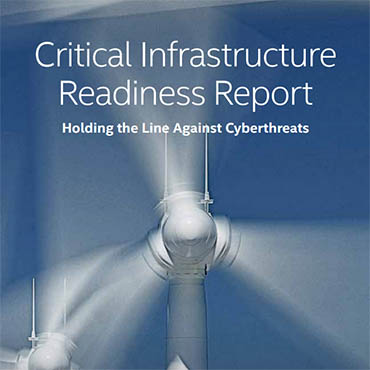Infrastructure looks to government for cyber help
A new survey shows critical infrastructure providers expect the physical impact of cyberattacks to worsen.

(McAfee)
What: “Critical Infrastructure Readiness Report: Holding the Line Against Cyber Threats,” by the Aspen Institute and Intel Security.
Why: Because of their unique position between the public and government, as well as the crucial services they provide to the public, critical infrastructure providers have special cyber-protection needs.
Intel Security and the Aspen Homeland Security Program said they polled IT decision makers representing 625 critical infrastructure organizations, with an average 12 years of security experience, including 250 in the United States, and 125 each from France, Germany and the United Kingdom.
The critical infrastructure providers surveyed are pleased with the results of their efforts to improve cybersecurity over the last three years. At the same time, almost three quarters (72 percent) said that the threat level was escalating. Almost half (48 percent) believed a cyberattack on critical infrastructure, with possible human physical casualties resulting, could occur within the next three years. Most of those who had experienced a cyberattack, 59 percent, said their facilities had already sustained some sort of physical damage stemming from such an attack.
Increasingly critical infrastructure providers looked to more cooperation between public and private sectors to blunt cyberattacks, with 86 percent believing cooperation on infrastructure protection is critical to successful cyber defense. Additionally, the survey found 68 percent believed their government can be a valuable partner in cybersecurity.
They also believed government should respond to attacks on critical infrastructure providers. According to the survey, 67 percent of respondents said a national defense force should respond when a cyberattack damages a critical infrastructure company within national borders.
Verbatim: “Respondents were asked about several types of cooperation, such as joining a national or international public-private defense council, sharing network and defense information with other organizations in the same industry or a national or international agency, taking direction from a government agency on cyberdefense strategy, or national legislation on cybersecurity cooperation. The majority of respondents were open to all of these, ranging from 54 percent open to sharing information with an international authority to 69 percent open to joining a national defense council.”
Full report: Read the study here.





